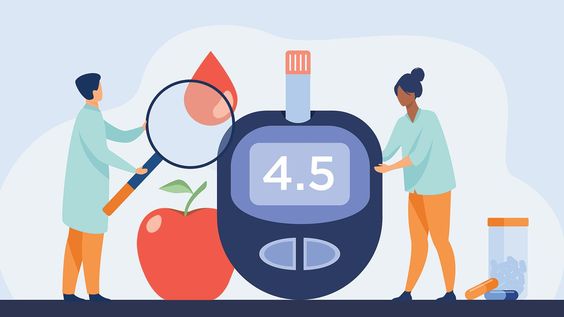Introduction:
Living with diabetes requires careful management to maintain stable blood sugar levels and prevent complications. It involves a multifaceted approach encompassing diet, exercise, medication, and lifestyle modifications. While it can feel overwhelming at times, having the right tools and strategies in place can make managing diabetes much more manageable.

This comprehensive guide will provide you with valuable tips and tools to help you navigate the challenges of diabetes. We'll delve into the importance of blood sugar monitoring, discuss healthy eating habits, explore the benefits of regular physical activity, and emphasize the significance of emotional well-being.
Understanding Diabetes Management
Diabetes arises from the body's inability to produce or effectively use insulin, a hormone that regulates blood sugar. The primary goal of diabetes management is to keep blood glucose levels within a target range, preventing hyperglycemia (high blood sugar) and hypoglycemia (low blood sugar).
Essential Tips for Effective Diabetes Management
1. Blood Sugar Monitoring:
Regularly monitoring your blood sugar levels is crucial to understand how your body responds to food, exercise, and medication. It allows you to make necessary adjustments to your daily routine and medication dosages as needed.
2. Healthy Eating Habits:
Adopting a balanced and nutritious diet plays a vital role in diabetes management. Focus on consuming:
- Fiber-rich foods: Fruits, vegetables, whole grains, and legumes
- Lean protein: Fish, chicken, beans, lentils, tofu
- Healthy fats: Avocado, nuts, seeds, olive oil
Limit your intake of processed foods, sugary drinks, and saturated and trans fats.
3. Regular Physical Activity:
Engaging in regular physical activity helps improve insulin sensitivity, aids in weight management, and promotes overall well-being. Aim for at least 150 minutes of moderate-intensity aerobic exercise or 75 minutes of vigorous-intensity aerobic exercise per week.
4. Medication Adherence:
If you're prescribed diabetes medication, it's essential to take it as directed by your healthcare provider. Never adjust your dosage or stop taking your medication without consulting your doctor.
5. Emotional Well-being:
Managing diabetes can be emotionally demanding. Seek support from loved ones, join a support group, or consider therapy to help you cope with the challenges and maintain a positive mindset.





